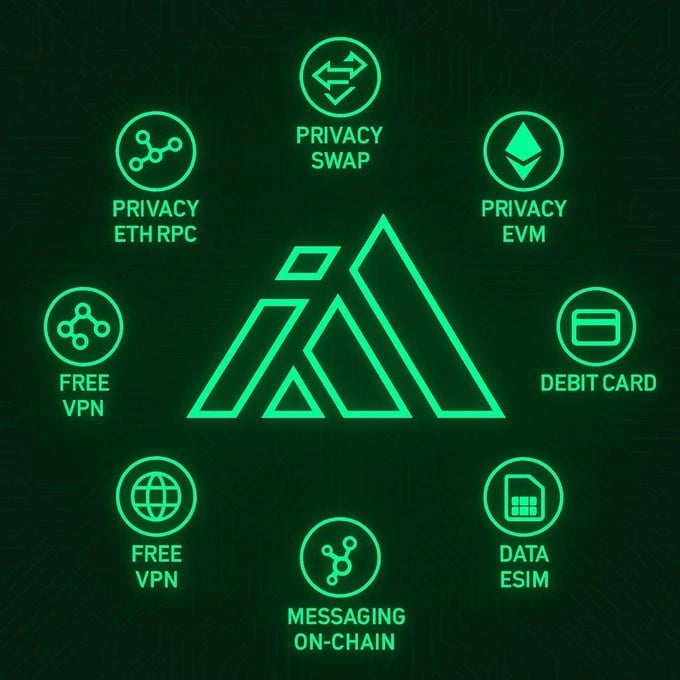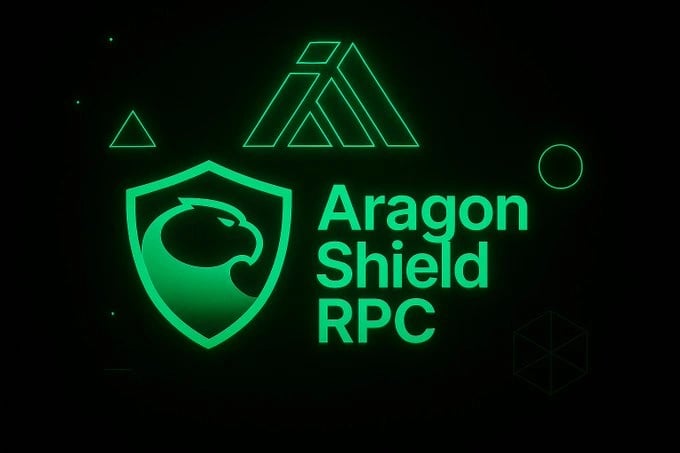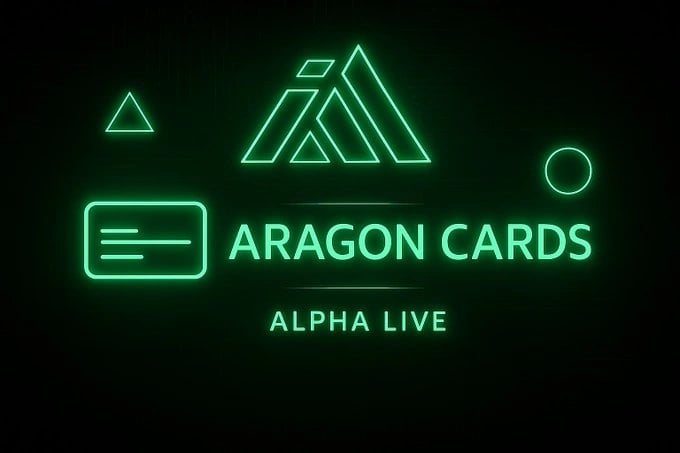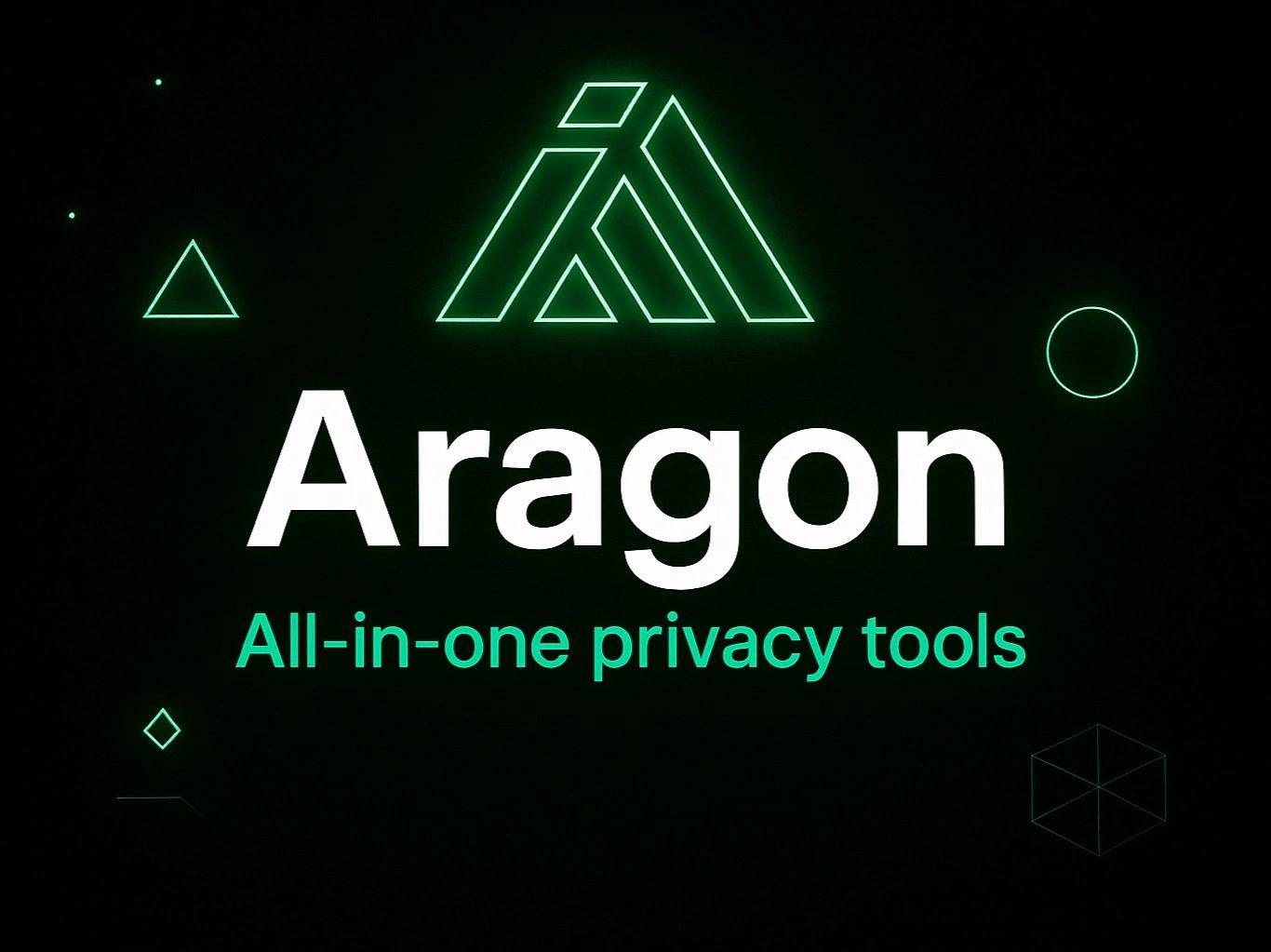위키 구독하기
Share wiki
Bookmark
Aragon Protocol
0%
Aragon Protocol
Aragon Protocol은 안전하고 기밀성이 유지되며 규정을 준수하는 분산 금융(DeFi) 블록체인 거래를 제공하는 것을 목표로 하는 분산 금융(DeFi)을 위한 개인 정보 보호 프로토콜입니다. 자금세탁 방지(AML) 규정과 같은 규제 표준을 준수하면서 분산 프로토콜에 개인 정보 보호 기능을 통합하고자 합니다. [1]
개요
Aragon Protocol은 자금세탁 방지(AML) 조치와 같은 규제 표준을 준수하면서 사용자 거래 데이터를 보호하도록 설계된 개인 정보 보호 중심 암호화폐 프로토콜입니다. 법적 요구 사항을 훼손하지 않고 분산 시스템에 개인 정보 보호 기능을 통합하여 규정을 준수하면서 금융 거래에서 기밀성을 추구하는 사용자와 기관을 위한 솔루션으로 자리매김하는 것을 목표로 합니다. [2]
특징

개인 스왑
개인 스왑은 Aragon Protocol의 주요 기능으로, 사용자가 지갑 주소, 자산 보유량 또는 거래 내역을 공개하지 않고 토큰을 교환할 수 있습니다. KYC 비준수 및 KYC 준수 거래소 간의 스왑을 지원하여 규정 준수를 유지하면서 개인 정보 보호 전송을 허용합니다. 이 프로세스에는 스왑 시작, 지정된 거래소로 첫 번째 자산 전송, 민감한 거래 데이터를 노출하지 않고 두 번째 자산 수신이 포함됩니다. [3]
Aragon Shield

Aragon Shield는 이더리움 사용자를 데이터 수집 및 프론트러닝 및 샌드위치 공격과 같은 MEV(Miner Extractable Value) 악용으로부터 보호하도록 설계된 개인 정보 보호 중심 RPC 서비스입니다. Infura와 같은 기존 RPC 제공업체가 일반적으로 수집하는 IP 주소, 메타데이터 및 기타 사용자 정보의 노출을 방지합니다. Aragon Shield의 엔드포인트로 지갑을 구성함으로써 사용자는 추가 설정 없이 자동 보호를 받을 수 있습니다. 이 서비스는 이더리움 생태계에서 사용자 개인 정보 보호 및 거래 보안을 우선시하면서 원활한 통합을 강조합니다. [4]
Anti-FrontRun DEX
Aragon의 Anti-FrontRun DEX는 분산 거래소에서 MEV 봇에 의한 프론트러닝을 방지하도록 설계되었습니다. 이는 거래를 공개 멤풀에서 제외하여 보류 중인 거래를 악용하는 봇에 보이지 않게 만드는 개인 RPC를 사용하여 이를 달성합니다. 사용자는 이러한 개인 채널을 통해 거래를 서명하고 전송하여 거래가 확인되고 검증될 때까지 기밀성을 보장합니다. 이 접근 방식은 복잡한 알고리즘에 의존하지 않고 보호하므로 조작으로부터 거래 실행을 보호하고 유리한 거래 결과를 보장합니다. [5]
SafeGuard VPN
SafeGuard VPN은 Aragon의 개인 정보 보호 도구로, 사용자 데이터를 암호화하고 특히 공용 Wi-Fi와 같은 보안되지 않은 네트워크에서 온라인 활동을 보호하도록 설계되었습니다. 데이터 또는 로그 수집이 없는 개인 브라우징, 공정 사용 제한 하의 무제한 대역폭 및 광고 보호를 제공합니다. 이 서비스는 보유자에게 무료로 제공되며 많은 기존 제공업체보다 엄격한 개인 정보 보호 표준을 갖춘 규정을 준수하는 안전한 VPN 대안으로 자리매김하고 있습니다. [6]
Privacy EVM
Aragon의 Privacy EVM은 개인 스마트 계약 실행 및 기밀 분산 애플리케이션(dApp) 상호 작용을 가능하게 하는 수정된 이더리움 가상 머신입니다. 관련된 당사자에게만 거래 가시성을 제한하면서 표준 EVM 기능을 유지합니다. 사용자는 Aragon 탐색기를 통해 인증하여 거래 세부 정보에 액세스해야 하며, 발신자와 수신자만 데이터를 볼 수 있습니다. 이 아키텍처는 민감한 정보를 보호하고 블록체인에서 안전하고 개인적인 상호 작용을 지원합니다. [7]
카드 서비스

Aragon의 카드 서비스는 직불 카드를 통해 암호화폐 오프램프를 제공하여 디지털 자산을 일상적인 사용을 위한 법정 화폐로 변환합니다. 사용자는 암호화폐를 Aragon으로 보내고 Apple Pay 및 Google Pay와 같은 플랫폼과 호환되는 직불 카드를 받습니다. Visa 및 MasterCard에서 지원하는 이 카드는 금융 서비스 제공업체를 제외한 대부분의 가맹점에서 허용되므로 사용자는 기존 거래소를 거치지 않고 개인 정보를 보호하면서 암호화폐를 사용할 수 있습니다. [8]
Aragon Talks
Aragon Talks는 Aragon Chain에 구축된 분산형 암호화 메시징 플랫폼으로, 개인적인 온체인 통신을 가능하게 합니다. 중앙 집중식 제어 및 데이터 수익 창출을 피하고 변조 방지 메시지 저장 및 향상된 사용자 개인 정보 보호를 제공하여 기존 메시징 앱과 다릅니다. 메시지는 종단 간 암호화되며 플랫폼은 사용자 데이터를 공유하거나 수익을 창출하지 않습니다. 분산형 설계는 대화가 안전하고 투명하며 제3자의 간섭으로부터 자유롭게 유지되도록 보장합니다. [10]
ARG
$ARG 토큰은 수익 공유, VPN 액세스, 직불 카드 거래 및 개인 EVM 브리지에 대한 수수료 지불을 포함하여 주요 기능을 지원하기 위해 Aragon 생태계 전체에서 사용됩니다. 토큰 보유자는 $ARG를 스테이킹하여 플랫폼 수익의 일부를 받을 수 있으며 장기 참가자에게는 추가 인센티브와 혜택이 제공됩니다. 이 구조는 사용자 참여를 장려하면서 $ARG를 프로토콜의 개인 정보 보호 인프라에 통합합니다. 총 공급량은 1백만 개의 토큰이며 LP에 100% 배포되어 커뮤니티에서 사용할 수 있습니다. [9]
파트너십
- Three Protocol
- Sudo Labs
- Healix AI
잘못된 내용이 있나요?
